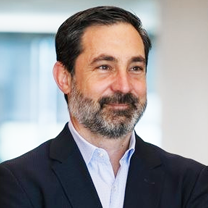
on Posted on Reading Time: 2 minutes
The telecom industry is at an inflection point. A 2021 Gartner report states that “enterprises’ uptake of cloud IT, internet WAN, and SD-WAN are the largest growth opportunities in the network services market.” Enterprises are increasingly demanding simpler, on-demand service delivery, with a single portal offering services across multiple operators. But as anyone who works in telecom can tell you, these goals are still a work in progress.
Demand for enterprise network connectivity has never been greater, with bandwidth needs increasing between 20% and 30% annually. While there have been some improvements in how these services are offered—the buying and selling of intercarrier services remains the bane of the telecom world. Nothing about this process has ever been easy, and errors and delays are more common than not. Businesses don’t want to wait months for service, and operators want to improve their quote-to-cash timelines. Without a standardized way for providers to buy and sell these services from each other, a bottleneck exists that slows up everything else.
When modernizing a long-established function like intercarrier telecom services, true progress takes time. Each provider has existing systems and processes that need to be transformed and redefined so that everyone can do business together more easily.
MEF has been working to address these issues in important ways. They have developed and are evolving a set of open LSO APIs, with the end goal of standardizing how digital services are orchestrated across a global ecosystem of automated networks. They have created a way for companies like Neustar and other like-minded industry partners to help solve this problem by embedding MEF LSO APIs into some of the leading back-office software tools. MEF LSO Sonata APIs focus specifically on improving the inter-provider experience by allowing data to be seamlessly transmitted from system to system, creating a connected experience across service providers. It’s the first step toward achieving the enterprise self-service vision.
The writing is on the wall. Today, more than 50 leading companies are in production with LSO Sonata APIs or intend to be by the end of 2023. This number includes both the buyer and seller side and some of the largest global service providers. Now is the time for the inter-provider ecosystem of BSS applications, systems integrators, and service providers to begin adopting and implementing new standards, processes, and solutions that will enable true interoperability.
Neustar, a TransUnion company, is also doing its part to streamline and simplify the entire process of buying and selling intercarrier services through an automated, cloud-based order management platform called Universal Order Connect (UOC). As a MEF LSO API Solution Provider, Neustar helps to fast-track service provider implementations of LSO Sonata APIs because we have designed for them in our UOC order management platform. This is a service provider “easy button” because there is no need to tie up internal IT resources—and it becomes a true differentiator because it improves service delivery times for enterprise customers.
Digital progress depends on everyone working together, and we are proud to be part of MEF’s initiative towards greater interoperability. Neustar is a proud sponsor of the 4 May MEF LSO Partner Conference in Paris, France. Contact us today to schedule a meeting and visit our wholesale connectivity resource center to learn more.

